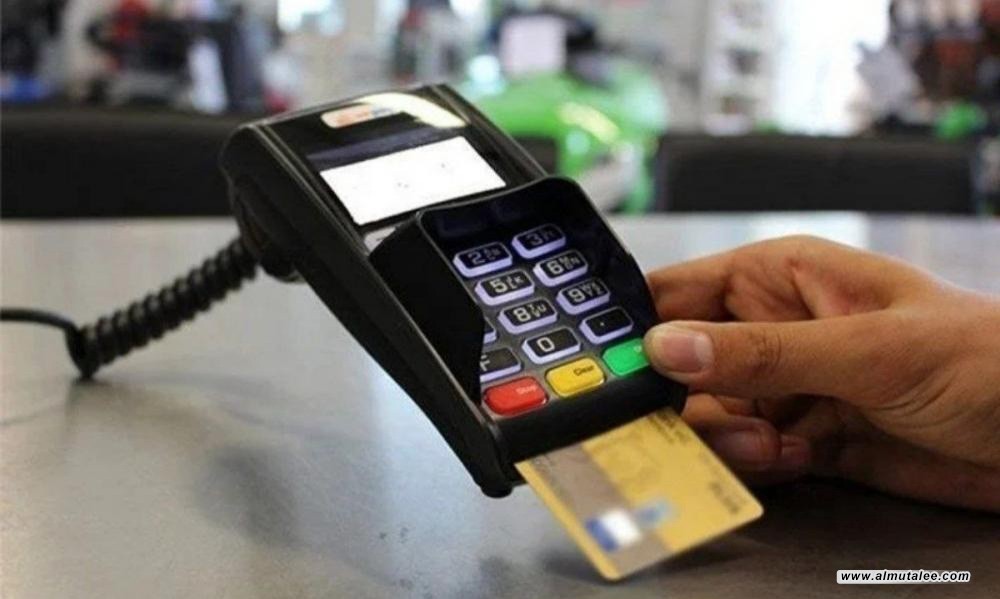Al-Adad: Iraq is in a transitional stage in electronic payment, and there is no scarcity of dollars
Al-Adad: Iraq is in a transitional stage in electronic payment, and there is no scarcity of dollars
2023-11-03 87 local 0
 The Prime Minister’s advisor, Amer Al-Adad, confirmed that “Iraq is in a transitional stage in electronic payment, while denying the existence of a scarcity of dollar liquidity.”
The Prime Minister’s advisor, Amer Al-Adad, confirmed that “Iraq is in a transitional stage in electronic payment, while denying the existence of a scarcity of dollar liquidity.”
Al-Adad said in a televised interview followed by Al-Mutala’ this evening, that: “Electronic payment points are a device that allows a person to pay with an electronic payment card at points of sale in order to increase the transparency of the movement of money in the country and preserve public money. It is part of a larger program to transform into banking.” Electronic technology, increasing and increasing citizen confidence in the banking system, and also to bring savings from homes to the banking system in order to stimulate the circular flow of the economy.”
He added: “As for the BUS system, it is a tool for reducing the process of corruption and loss of cash. There are decisions towards electronic payment and the possibility of using the payment system over the phone, and there is a strong political will and push to adopt this system,” pointing to “the merchant’s fear of the tax assessment regarding dealing with electronic payment.” But the government provided many reassuring messages and exemptions in order to adopt this system.”
Al-Adad continued, “At this stage and now, there may be between 7 million or 9 million cards in Iraq, and it will grow even more now by imposing the collection of fees, and now we are in a transitional period so as not to confuse the market, after which the electronic payment system will be emphasized,” indicating, “The culture of electronic transactions helps in Transparency and avoiding financial blackmail.
He pointed out, “The challenges of development were due to the loss of the real compass, and there has been no real development plan since the Reconstruction Council,” denying that “the government has a shortage of liquidity,” stressing, “Money is available, and hard currency is also available through oil sales and currency auctions.”
Al-Adad added: “There is a reform management cell that is not concerned with administrative reform in particular, but rather with following up on the implementation of reform projects as approved by the state within the government curriculum, and there is a clear vision for the cell.”
He explained, “We are working on two tracks, which is the government program and what the ministries have set to implement the program and the reform plan. Also, the economic reforms in the current government are characterized by seriousness and follow-up. In the reform program, we found that the targets do not match the goals, and we have set new targets for each goal.”
Al-Adad continued, “For the first time in successive governments, the current government is drawing up a plan and knows that many of the fruits will be reaped by others,” noting that “external variables include factors that affect the price of money and others that affect internal political stability, and we have stability on both sides,” stressing “political stability and high oil prices.” Contributed to the improvement of the Iraqi economy.”
He noted, “The basic challenges facing the state in structure and circular flow include the collection of taxes and customs and weak confidence in the banking system. For this reason, the government is focusing on pushing this direction and has developed a new plan for the knowledge economy. We are seeking new ways to diversify financial revenues, and the government is serious about changing the structure and diversity of the Iraqi economy.” “, pointing out that “the mixed sector experience is useless and has proven to be a failure in Iraq.”
Al-Adad said, “Collection is the duty of the state, but this type of contract has been transferred to the private sector, and the experience of electronic collection of electricity was largely successful, and this was proven in Anbar, and investment depends on reforming the banking system.”
He stressed, “The government of Muhammad Shiaa Al-Sudani is very cautious regarding the issue of the people’s assets, lands, and residential complexes, and is working on a real plan to support prices,” revealing, “When the fall of the former regime, we discovered Iraq’s debt of 200 billion dollars as a price for operating factories by purchasing materials without paying for them.”
Al-Adad said, “We are working through a study to improve the status of state-owned industrial companies, which include the mixed and governmental sectors.”
Regarding the government’s plan to improve the agricultural situation, Al-Adad concluded: “Today, with the scarcity of water, we are working to move towards the sustainability of agriculture through high-technology agriculture and closed agriculture, which reduces the rate of water consumption to 10%. Iraq is devoid of this technology; but the government is working on it today to include it in the Development.”
almutalee.com
